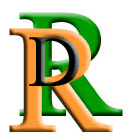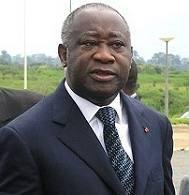Aimé Henri Konan Bédié is an Ivorian politician. He was President of Côte d'Ivoire from 1993 to 1999, and he is currently the President of the Democratic Party of Côte d'Ivoire - African Democratic Rally (PDCI-RDA).

The Rally of the Republicans is a liberal party in Ivory Coast. The party is the country's governing party; the party's leader, Alassane Ouattara, is the current President of Ivory Coast.

Romain Francis Wodié is an Ivorian politician. A professor and human rights activist, he led the Ivorian Workers' Party (PIT) from 1990 to 2011. During that time, Wodié served as a Deputy in the National Assembly of Côte d'Ivoire from 1990 to 1995 and as Minister of Higher Education from 1998 to 1999. He was President of the Constitutional Council of Côte d'Ivoire from 2011 to 2015.

A parliamentary election was held in Ivory Coast on 11 December 2011, after the presidential election which was held in late 2010. This followed a peace agreement between the government and the New Forces that was signed in March 2007. The Rally of the Republicans, the party of President Alassane Ouattara, won just under half the seats in the National Assembly.

Presidential elections were held in Ivory Coast on 22 October 2000. Robert Guéï, who headed a transitional military regime following the December 1999 coup d'état, stood as a candidate in the election. All of the major opposition candidates except for Laurent Gbagbo of the Ivorian Popular Front (FPI) were barred from standing. The Rally of the Republicans (RDR) and Democratic Party of Côte d'Ivoire – African Democratic Rally (PDCI-RCA) boycotted the election in response to the exclusion of their candidates by the Supreme Court.

General elections were held in Ivory Coast on 27 November 1960 to elect a President and National Assembly. Under the constitution enacted that year, the country was officially a one-party state with the Democratic Party of Côte d'Ivoire – African Democratic Rally (PDCI-RDA) as the sole legal party. Its leader, Félix Houphouët-Boigny, was automatically elected to a five-year term as president and unanimously confirmed in office via a referendum. A single list of PDCI-RDA candidates won all 70 seats in the National Assembly. Voter turnout was 95.9% in the parliamentary election and 98.8% in the presidential election.

General elections were held in Ivory Coast on 7 November 1965 to elect a President and National Assembly. At the time the country was a one-party state with the Democratic Party of Côte d'Ivoire – African Democratic Rally (PDCI-RDA) as the sole legal party. Its leader Félix Houphouët-Boigny was elected President unopposed, whilst the PDCI-RDA won all 85 seats in the National Assembly. Voter turnout was 99.6%.

General elections were held in Ivory Coast on 29 November 1970 to elect a President and National Assembly. At the time the country was a one-party state with the Democratic Party of Côte d'Ivoire – African Democratic Rally (PDCI-RDA) as the sole legal party. Its leader Félix Houphouët-Boigny was elected President unopposed, whilst in the National Assembly election, a list of 100 PDCI-RDA candidates for the 100 seats was presented to the electorate for approval. Voter turnout was reported to be 98.9% in the parliamentary election and 99.2% in the presidential election.

General elections were held in Ivory Coast on 16 November 1975 to elect a President and National Assembly. At the time the country was a one-party state with the Democratic Party of Côte d'Ivoire – African Democratic Rally (PDCI-RDA) as the sole legal party. Its leader Félix Houphouët-Boigny was elected President unopposed, whilst in the National Assembly election the PDCI-RDA won all 120 seats. Voter turnout was reported to be 99.3% in the parliamentary election and 99.8% in the presidential election.

Parliamentary elections were held in Ivory Coast on 9 November 1980, with a second round on 23 November. At the time the country was a one-party state with the Democratic Party of Côte d'Ivoire – African Democratic Rally (PDCI-RDA) as the sole legal party. Unlike previous elections in which voters approved a single list of PDCI-RDA candidates, this election saw 649 PDCI-RDA candidates contest the 147 seats on a two-round absolute majority basis. 74 candidates were elected in the first round, with the remainder requiring a second round of voting. Only 27 of the incumbent MPs retained their seats. Voter turnout was just 42.6%.

Parliamentary elections were held in Ivory Coast on 10 November 1985. At the time the country was a one-party state with the Democratic Party of Côte d'Ivoire – African Democratic Rally (PDCI-RDA) as the sole legal party. 546 PDCI-RDA candidates contested the 175 seats. Voter turnout was reported to be just 45.7%.

Parliamentary elections were held in Ivory Coast on 26 November 1995. Ten parties and a number of independents contested the election, with the Rally of the Republicans and the Ivorian Popular Front running under the Republican Front banner. The result was a victory for the ruling Democratic Party of Côte d'Ivoire – African Democratic Rally (PDCI-RDA), which won 148 of the 175 seats.

Parliamentary elections were held in Ivory Coast on 12 April 1959 as a prelude to independence the next year. The Democratic Party of Côte d'Ivoire – African Democratic Rally was the only party to contest the election, thereby winning all 100 seats. Voter turnout was 94.7%.
The African Regroupment Party was a political party in the French African colonies.

Jeannot Ahoussou-Kouadio is an Ivorian politician who was Prime Minister of Ivory Coast from March 2012 to November 2012. Previously he was Minister of Industry from 2002 to 2005 and Minister of Justice from 2010 to 2012.

General Council elections were held in French Ivory Coast in December 1946 and 5 January 1947. The Democratic Party of Côte d'Ivoire – African Democratic Rally won all 15 seats in the Second College in Ivory Coast, and 24 of the 30 Second College seats overall.

The Vice President of the Republic of Ivory Coast, officially the Republic of Côte d'Ivoire, is the second-highest executive official in Ivory Coast. The Vice President, together with the President of Ivory Coast, is directly elected by the people through popular vote to serve a five-year term of office. The Vice President is the first person in the presidential line of succession and would ascend to the presidency upon the death or resignation of the President, or an absolute vacancy in the office. President Alassane Ouattara appointed Daniel Kablan Duncan as Vice President in January 2017 after the 2016 Constitution was enacted.







